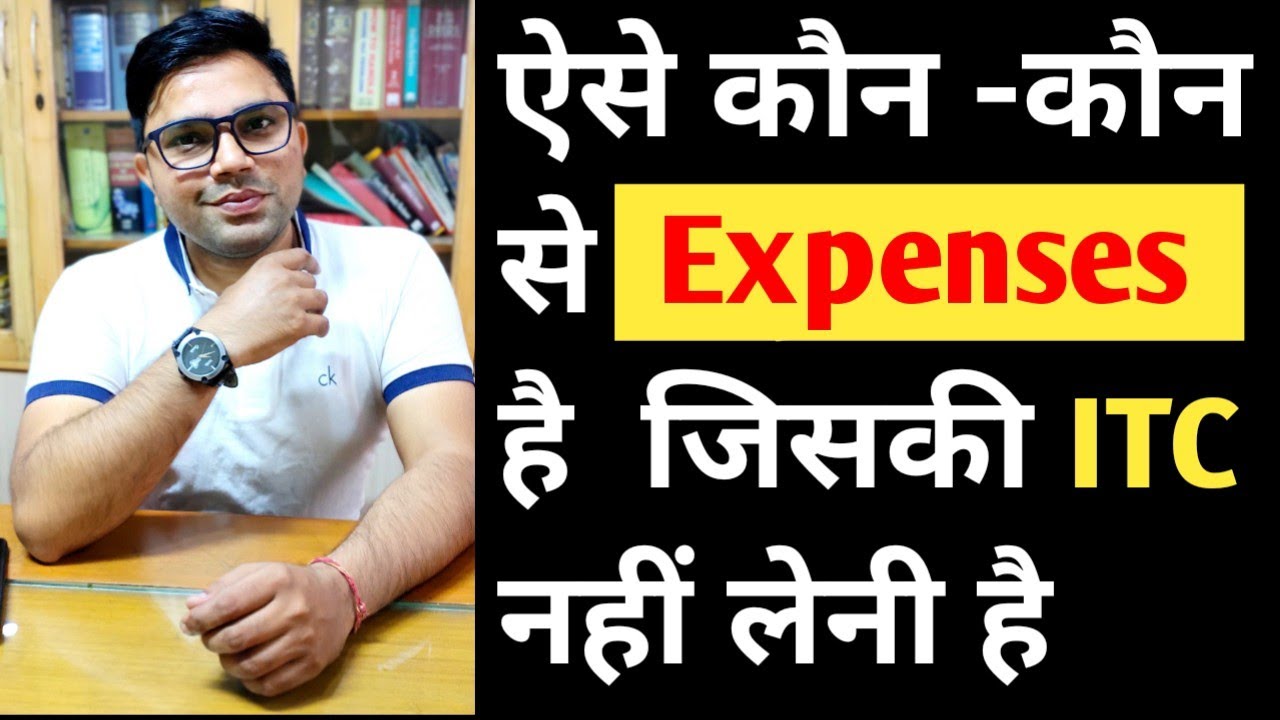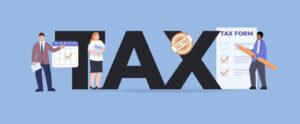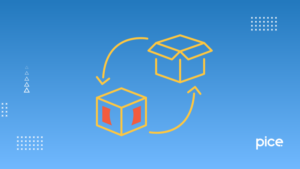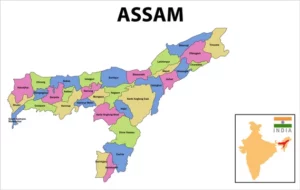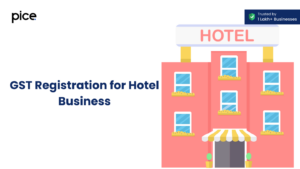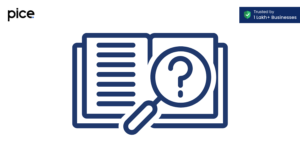What Constitutes Ineligible ITC in GSTR 3B?
- 22 Aug 24
- 15 mins
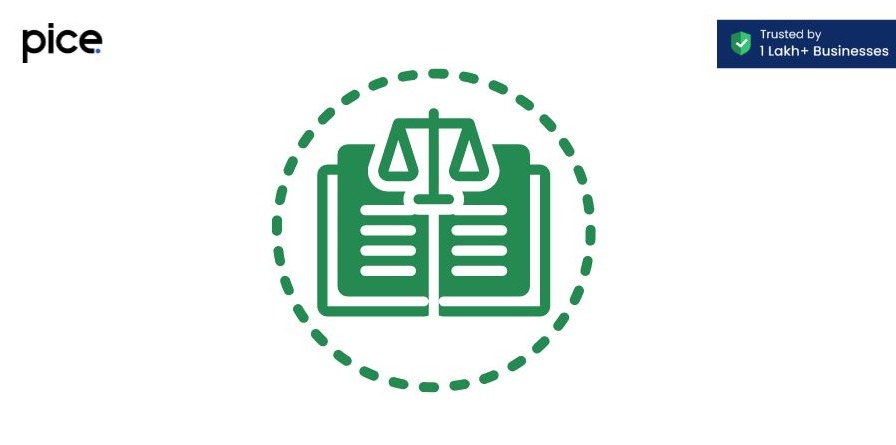
What Constitutes Ineligible ITC in GSTR 3B?
- What is the input tax credit in GST?
- Eligible and Ineligible Input Tax Credit
- Exceptions in ITC Availability
- Ineligible ITC/Blocked ITC
- Who Can Claim Input Tax Credit Under GST?
- Time Limit to Claim Input Tax Credit Under GST
- What is Ineligible ITC in GSTR-3B?
- List of Goods and Services Not Eligible for Input Tax Credit
- Conclusion
Key Takeaways
- ITC Eligibility: Only registered businesses under GST can claim ITC on goods and services used for business purposes.
- Maintain Compliance: Ensure your suppliers are GST-compliant and have filed their returns to validate your ITC claims.
- Keep Proper Documentation: Accurate tax invoices, receipts, and proof of GST actual payments are essential for claiming ITC.
- Timely Filing: File your GST returns on time and reconcile ITC claims with conditions related to supplier data regularly.
- Know Ineligible ITC: Be aware of items that are blocked from ITC claims, such as personal expenses and non-business related goods and services.
If you're diving into the world of goods and services tax (GST), you've probably come across the term "input tax credit," or ITC. But what exactly is it? In simple terms, ITC allows businesses to reduce the tax components they have paid on inputs (goods and services used to run the business) from the tax they owe on their output (products and services they sell).
This mechanism ensures that tax is paid only on the value added at each stage of the supply chain, thereby avoiding the cascading effect of taxes.
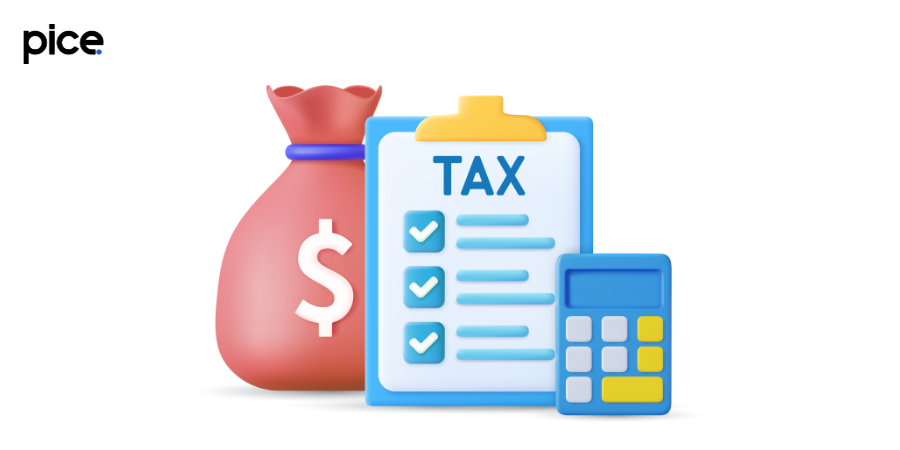
What is the input tax credit in GST?
What is GST?
GST, or Goods and Services Tax, is a comprehensive, multi-stage, destination-based tax that is levied on every value addition. It's a single tax on the supply of goods and services, right from the manufacturer to the consumer.
Role of ITC in GST
ITC is a fundamental feature of GST. It ensures that the tax is collected on the value added at each stage of production or distribution. This system prevents the double taxation effect, making the final product or service cheaper for the end consumer.
Eligible and Ineligible Input Tax Credit
Eligible Input Tax Credit (ITC) refers to the GST paid on inputs that can be claimed as a credit against the tax payable on outputs. This system ensures that businesses only pay tax on the value they add to goods and services, not on the entire cost of inputs.
For example, if a manufacturer buys raw materials to produce a product, the GST paid on those raw materials is considered eligible credit. Similarly, if a company purchases machinery necessary for its operations, the GST paid on that machinery is also eligible for ITC.
Services like advertising, consulting, and other business-related expenditures can also qualify as eligible ITC. The key criteria are that these goods and services must be used for business purposes and must be GST-compliant.
To summarize, eligible ITC include:
- Raw materials: Goods used in the production process.
- Capital goods: Machinery and equipment used in business operations.
- Business services: Professional services such as advertising, legal advice, and consulting.
- Operational expenses: Office supplies, rent, and other expenditures necessary for running the business.
Claiming eligible ITC helps businesses reduce their overall tax burden, making their products and services more competitive in the market.
Definition of Ineligible ITC
Ineligible Input Tax Credit refers to the GST paid on certain inputs that cannot be claimed as a credit. Typically, these items are either for personal use or are expressly exempt from GST laws.
Ineligible ITC typically includes:
- Personal consumption: Goods and services purchased for personal use, not related to business activities.
- Employee benefits: Benefits provided to employees, such as club memberships, beauty treatments, health services, and insurance premiums (unless mandated by law).
- Motor vehicles: The GST paid on the purchase of motor vehicles is usually ineligible for ITC unless the vehicle is used for certain specified purposes like transportation of goods or passengers for hire.
- Construction services: GST paid on construction services (with some exceptions) used for business premises.
- Goods lost, stolen, or destroyed: Any goods that are no longer available for use due to being lost, stolen, or destroyed do not qualify for ITC.
- Others specified by law: Any other goods and services that are specifically excluded under GST law, such as certain leisure and entertainment services.
For instance, if a business owner buys a car for personal use, the GST paid on that car is ineligible for ITC. Similarly, expenses on personal health and fitness services provided to employees are also excluded.
Exceptions in ITC Availability
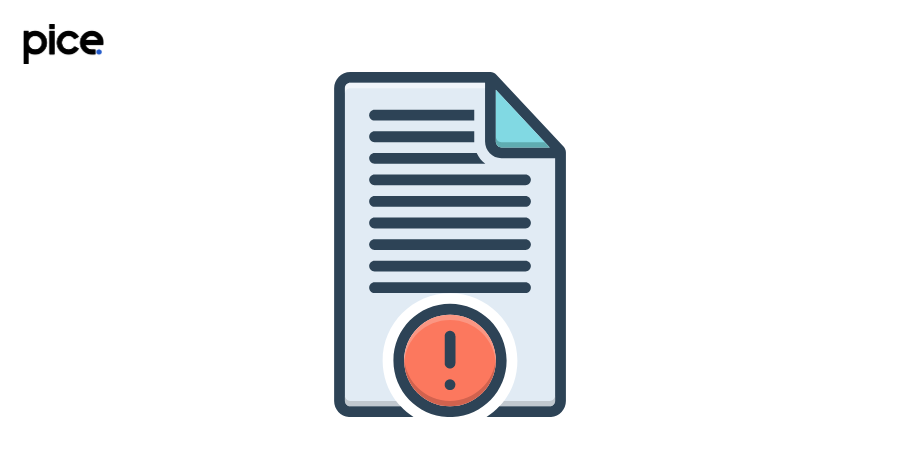
Overview of Exceptions
Input Tax Credit (ITC) is designed to allow businesses to claim credit for the GST paid on inputs used for business purposes. However, there are exceptions where certain goods and services may be subject to specific conditions or may only be partially eligible for ITC. Understanding these exceptions is essential for businesses to correctly claim ITC and avoid penalties.
ITC Available and "Not Ineligible"
The concept of "Not Ineligible" refers to items that are not outrightly ineligible for ITC but have certain restrictions or conditions attached. These conditions may dictate the manner or extent to which ITC can be claimed. Here are some detailed scenarios and conditions under this category:
- Partial ITC for Composite and Mixed Supply:
- Composite Supply: A composite supply is a combination of goods or services that are naturally bundled and supplied together. For example, a package of hotel accommodation and breakfast. In such cases, ITC can be claimed on the entire supply if it qualifies as a composite supply.
- Mixed Supply: A mixed supply is a combination of goods or services supplied together but not naturally bundled. For example, a gift basket containing chocolates, flowers, and a bottle of wine. ITC on mixed supplies may be available but needs to be apportioned based on the taxable and non-taxable components.
- ITC on Goods Sent for Job Work:
- Businesses can claim ITC on goods sent for job work (processing or manufacturing) provided that the goods are returned within a specified tax period (usually one year for inputs and three years for capital goods). If the goods are not returned within the specified period, the ITC claimed must be reversed.
- ITC on Inputs Used for Both Taxable and Exempt Supplies:
- When goods or services are used for both taxable and exempt supplies, ITC can only be claimed proportionally. Businesses must use a specific formula to calculate the eligible ITC based on the turnover of taxable and exempt supplies.
- ITC on Capital Goods:
- Capital goods used exclusively for non-business purposes or exempt supplies are not eligible for ITC. However, if capital goods are used for both taxable and exempt supplies, ITC can be claimed proportionally over the useful life of the asset.
- ITC on Business Promotion Expenses:
- Expenses incurred for business promotions, such as free samples or gifts, may have restricted ITC availability. ITC on such expenses is usually disallowed unless they are provided as part of a taxable supply.
- ITC on Motor Vehicles:
- ITC on motor vehicles is generally not available unless the vehicles are used for specific purposes such as transportation of goods, passenger transport services, or for training on driving, flying, navigating such vehicles.
- ITC on Membership Fees:
- ITC on membership fees for clubs, health, and fitness centers is not available. However, if the membership is essential for the business (such as professional memberships for certain professions), it may be eligible under specific conditions.
- ITC on Travel Expenses:
- Travel expenses incurred for business purposes are eligible for ITC. However, if the travel is for personal reasons or combined business and personal trips, ITC is only available for the business portion of the expenses.
Detailed Scenarios and Conditions
- Mixed-Use Properties: When a property is used for both residential and commercial purposes, ITC can only be claimed on the portion used for commercial purposes.
- Employee Benefits: ITC on employee benefits like health insurance, and welfare activities may be restricted unless mandated by law.
- Import of Goods and Services: ITC on imports is available, but businesses must ensure that the imported goods are used for taxable supplies and that all necessary documentation is maintained.
Ineligible ITC/Blocked ITC
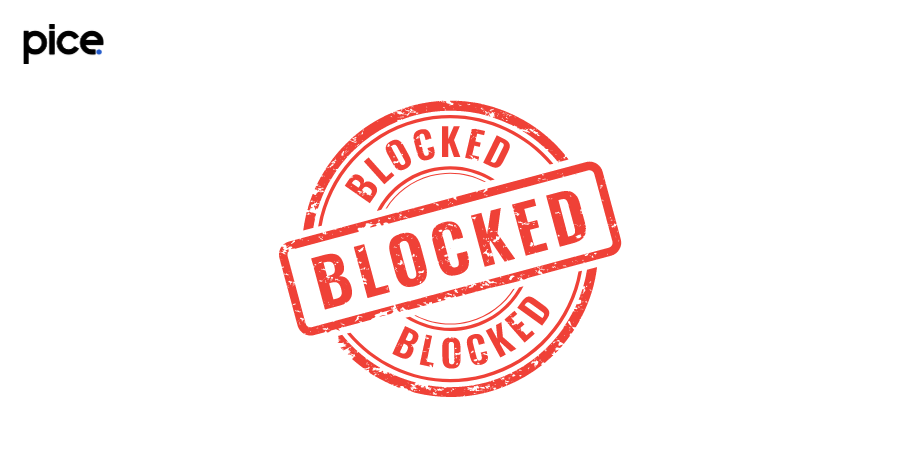
Ineligible ITC, also known as Blocked ITC, refers to the specific categories of goods and services on which Input Tax Credit claims cannot be claimed, as outlined by the GST law. These restrictions are put in place to prevent misuse and ensure that ITC is only claimed for legitimate business expenses.
Understanding these ineligible items is crucial for businesses to maintain secretarial compliances and avoid penalties. Here's a detailed look at what constitutes Blocked ITC under GST:
1. Motor Vehicles and Conveyances
- General Rule: ITC on motor vehicles and conveyances is blocked unless they are used for certain specific purposes.
- Exceptions: ITC can be claimed if the vehicles are used for:
- Transportation of goods.
- Providing passenger transportation services.
- Providing training on driving, flying, navigating such vehicles.
2. Food and Beverages, Outdoor Catering
- General Rule: ITC on expenses related to food and beverages, outdoor catering, beauty treatment, health services, cosmetic and plastic surgery is blocked.
- Exceptions: ITC can be claimed if these services are used to make an outward taxable supply of the same category or as part of a composite or mixed supply.
3. Membership of Clubs, Health, and Fitness Centres
- ITC on membership fees for clubs, health, and fitness centers is ineligible. This includes gym memberships and other similar subscriptions.
4. Rent-a-Cab, Life Insurance, and Health Insurance
- General Rule: ITC on rent-a-cab services, life insurance, and health insurance is blocked.
- Exceptions: ITC can be claimed if:
- The services are obligatory for an employer to provide to its employees under any law.
- The service is used to provide the same category of services as an outward taxable supply.
5. Travel Benefits Extended to Employees
- ITC on travel benefits extended to employees on vacation such as leave or home travel concession is not eligible.
6. Works Contract Services for Construction of Immovable Property
- General Rule: ITC on works contract services used for the construction of an immovable property (other than plant and machinery) is blocked.
- Exceptions: ITC can be claimed if the works contract service is an input service for further supply of works contract service.
7. Construction of Immovable Property
- ITC on goods or services received by a taxable person for the construction of an immovable property (other than plant and machinery) on his own account, including when such goods or services are used in the course or furtherance of business, is blocked.
8. Goods or Services Used for Personal Consumption
- ITC on goods or services used for personal consumption is not eligible. This includes any items that are not used for business purposes.
9. Goods Lost, Stolen, Destroyed, Written Off, or Disposed of by Way of Gift or Free Samples
- ITC on goods lost, stolen, destroyed, written off, or disposed of by way of gift or free samples is blocked. This is to prevent misuse and ensure ITC is claimed only on goods used in business operations.
10. ITC on Tax Paid Under Composition Scheme
- ITC cannot be claimed on the tax paid under the GST composition scheme. Businesses opting for this scheme pay tax at a lower rate and are not allowed to collect tax from their customers.
11. ITC on Goods or Services Used for Activities Specified Under Section 17(5)
- Section 17(5) of the CGST Act specifies several scenarios where ITC is blocked, including those mentioned above and any other scenarios as defined by GST law.
Who Can Claim Input Tax Credit Under GST?
Criteria for Claiming ITC
To be eligible to claim Input Tax Credit (ITC) under GST, a business must meet the following criteria:
- GST Registration: The business must be registered under GST.
- Valid Documentation: A valid tax invoice or debit note for the purchase must be available.
- Business Use: The goods or services must be used for business purposes.
Documentation Required
Proper documentation is essential for claiming ITC. Businesses must maintain:
- Tax Invoices and Debit Notes: Accurate tax invoices and debit notes for all purchases.
- Receipts: Receipts for goods and services purchased.
- GST Payment Proof: Records of GST tax payments made.
Maintaining these records ensures compliance and facilitates smooth ITC claims.
Time Limit to Claim Input Tax Credit Under GST
The time limit for claiming Input Tax Credit (ITC) under GST is:
- Due Date of September Return: ITC must be claimed by the due date of filing the GST return for September of the following financial year.
- Annual Return Filing Date: Alternatively, ITC can be claimed by the date of GST return filing the annual return, whichever is earlier.
Missing these deadlines means losing the opportunity to claim ITC.
How to Claim Input Tax Credit Under GST
Step-by-Step Process to claim GST input tax credit:
1. Ensure GST Registration
- Register your business under GST to obtain a valid GSTIN (Goods and Services Tax Identification Number). Only registered businesses are eligible to claim ITC.
2. Verify the GST Compliance of Suppliers
- Ensure that your suppliers are GST-registered and have filed their GST returns. This is crucial because ITC can only be claimed if the supplier has paid the GST to the government.
3. Maintain Proper Documentation
- Keep valid tax invoices or debit notes from your suppliers. These documents must contain all necessary details such as the supplier’s GSTIN, invoice number, date, and GST amount.
- Ensure that the goods or services are received and are used for business purposes.
4. File the Necessary GST Returns
- File your GST returns, particularly form GSTR-3B, which is a monthly summary return. Ensure that all details in your return are accurate and complete.
5. Match ITC Claims with Supplier Invoices
- Regularly reconcile the ITC claimed with the details available in GSTR-2A or GSTR-2B, which auto-populate based on the suppliers’ filings.
- Ensure that the ITC you claim matches the invoices uploaded by your suppliers.
6. Rectify Any Mismatches Promptly
- Address any discrepancies between your records and the suppliers’ records promptly.
- Communicate with suppliers to correct any errors in their filings to ensure your ITC claims are accurate.
What is Ineligible ITC in GSTR-3B?
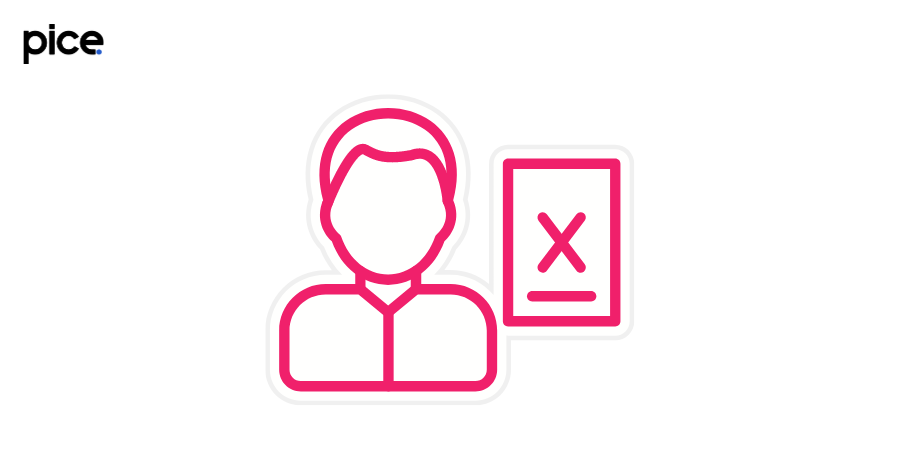
Businesses must submit a GSTR-3B self-declaration return each month to report their GST liabilities. It's a summary return that includes details of outward and inward supplies and the ITC claimed.
Ineligible ITC in GSTR-3B refers to the excess Input Tax Credit that cannot be claimed due to its nature or because it doesn't meet GST criteria. This includes:
- Blocked Credits: Items like personal expenses, motor vehicles for personal use, and employee benefits not mandated by law.
- Non-Business Use: Goods and services not used for business purposes.
- Non-Compliant Supplies: Purchases from non-GST compliant suppliers.
Ineligible ITC Under GST Section-17(5)
Overview of Section-17(5)
Section-17(5) of the GST Act specifies the categories of goods and services for which ITC is not available. This includes a detailed list of blocked credits that businesses need to be aware of.
Specific Ineligibilities
These include ITC on motor vehicles for personal use, outdoor catering, beauty treatment, health services, and goods and services used for personal consumption. Additionally, ITC is not available on goods lost, stolen, or destroyed.
List of Goods and Services Not Eligible for Input Tax Credit
Comprehensive List
- Motor vehicles for personal use
- Food and beverages, outdoor catering
- Beauty treatments and health services
- Life and health insurance
- Membership of clubs, health, and fitness centers
- Goods and services used for personal consumption
- Goods lost, stolen, or destroyed
- Construction services (with some exceptions)
Conclusion
Input Tax Credit is a powerful tool under GST that allows businesses to reduce their tax liability and ensure a smooth flow of credit through the supply chain. However, navigating the complexities of ITC eligibility, documentation, and compliance requires a thorough understanding of GST laws and timely action. By staying informed and vigilant, businesses can maximize their ITC claims and maintain compliance, ultimately improving their financial health.
💡Learn more about how our Pice can help you make all your important business payments, like supplier and vendor payments, rent, GST, & utility, from one single dashboard with your credit card. Request a demo now.







